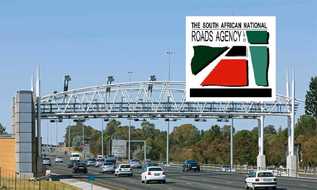 The Association for South African Quantity Surveyors (ASAQS) says that Quantity Surveyors are best placed to stem corruption in government infrastructure projects. The first step, says Larry Feinberg, Executive Director of ASAQS, is for both government officials as well as the ordinary taxpayer to understand what the role of a professional Quantity Surveyor (QS) is. “Globally, construction projects are highly susceptible to cost-overruns, owing to a number of factors. Here in South Africa, as in many other countries, we have the additional problem of corruption, where due process is flouted in order to benefit connected individuals or companies, often during the construction process itself,” says Feinberg. “The person best placed to identify deviations from the original tender in terms of both scope and pricing is the QS and, as such, they act as the client’s watchdog. In the case of public projects, we should remember, the client is ultimately the taxpayer, whose money is being spent—or wasted, in some cases.” Feinberg goes on to say, “In order to have the greatest impact, QSs should be involved right from the initiation stage of the project and also be involved in the planning and feasibility reports in addition to the approval of the actual procurement strategies”. One of the key issues in any project is to ensure that the tender is awarded to the right contractor at the right price. QSs play a critical role here because they are trained to manage the financial and legal processes of a project. During the design stage the QS’s estimate is the tool to ensure the design remains within the budget. During the procurement stage the QS produces the Bills of Quantities (BoQ) on which fair and equitable tenders are based. The BoQ is the ultimate document that provides the client with the knowledge of how much the project is going to cost before construction begins, which is invaluable in judging the tenders before they are awarded. The QS’s professional experience and training makes them the best persons to evaluate tenders. “The BoQ acts as the baseline for the entire project. Any subsequent additions or omissions to the project would also be assessed and costed using the BoQ as the guideline,” Feinberg adds. “The QS then acts as watchdog throughout the course of the project: monitoring progress against the BoQ, authorising payments as work is completed, noting deviations from the tender and, ultimately, producing the final account and be able to defend it to any stakeholder.” National, Provincial and Local Authorities (NPLA’s) are woefully short of experienced and professional QSs thus finding themselves not having enough bandwidth and experienced professional QS’s to manage the many projects at any given time. “Professional QSs are bound by a code of conduct and if they are found to have contravened it, they will lose their licence to practice as a QS,” Feinberg concludes. “This combination of professional discipline, skill and experience makes them the best persons to ensure that a tender is awarded to the right contractor—and that the project is delivered on time and on within budget. In this way, they serve both the NPLA’s and its ultimate boss, provider the taxpayer.” ENDS MEDIA CONTACT: Cathlen Fourie, 082 222 9198, [email protected], www.atthatpoint.co.za For more information on ASAQS please visit: Website: http://www.asaqs.co.za/ Facebook: The Association of South African Quantity Surveyors
0 Comments
|
Archives
July 2024
Categories
All
|

 RSS Feed
RSS Feed